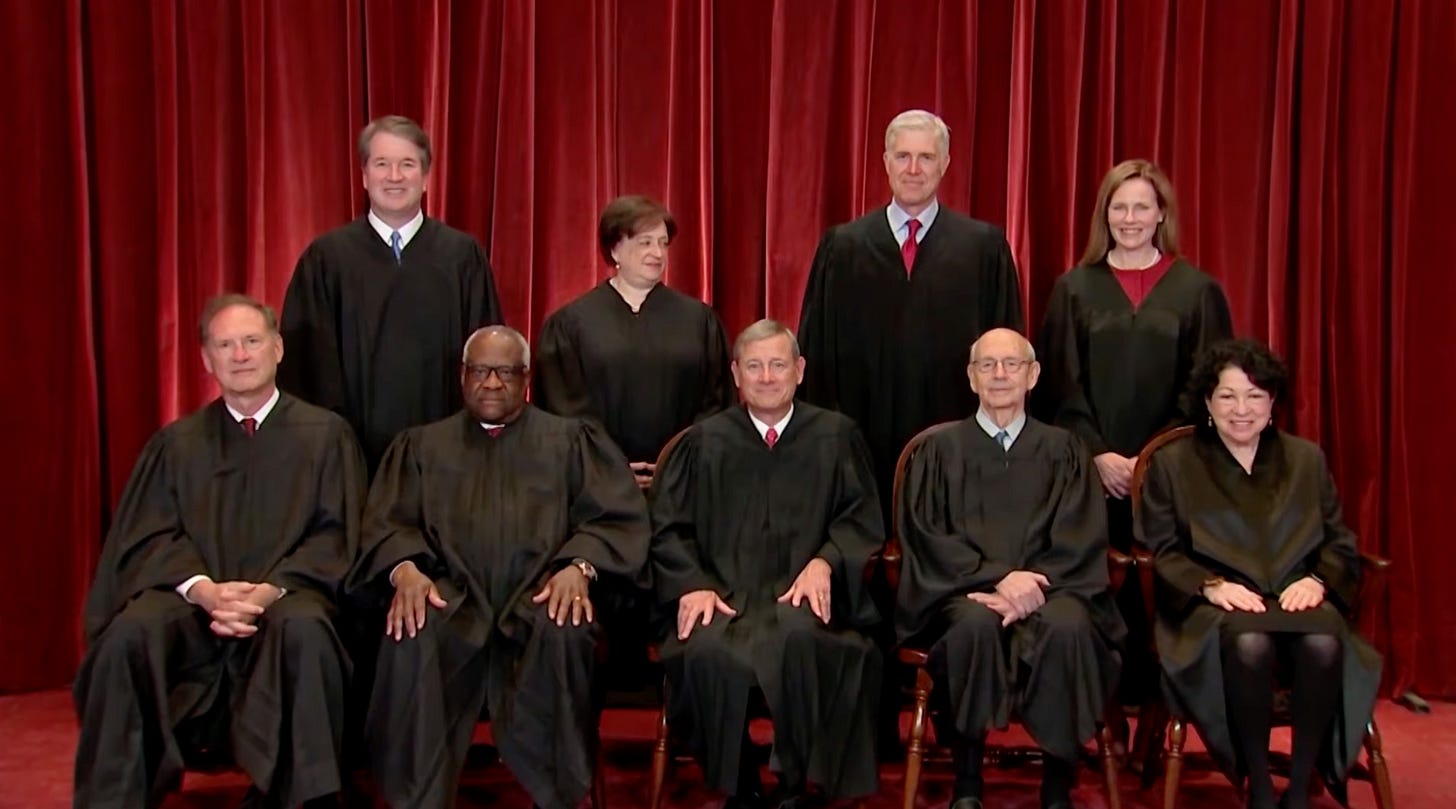Pack the Court or Face the Consequences
Either expand the Supreme Court or watch it destroy any attempts at meaningful progress. Those are the options.
Today, the Supreme Court's 6-3 conservative majority took yet another bite out of the Voting Rights Act, part of a decades-long project by Chief Justice John Roberts and his allies to destroy the act's protections against voter suppression. That project has succeeded beautifully; as of today, the jewel in the crown of the civil rights legislation of the 1960s is now, as longtime NPR legal affairs correspondent Nina Totenberg wrote, "close to a dead letter."
In recent weeks, a string of decisions that were either unanimous or saw unexpected groupings of liberal and conservative justices squaring off against each other prompted a good deal of chatter that the court is going through a "surprising" and potentially more ideologically heterodox moment than that 6-3 Republican majority would suggest. Perhaps, some suggested, the justices were signaling that they were capable of broad consensus politics and did not need any outside interference to help them reach more mainstream decisions.
Today's voting rights decision—as well as a separate 6-3 ruling that built on the Roberts Court's insistence that money laundering in politics is a sacred thing—should hopefully put an end to this sort of thing. When it comes down to the conservatives' core principles—especially on issues of basic democratic politics—the justices speak with one voice, and it is a voice on the far right.
Democrats are very busy not passing voting rights legislation right now, but even if they somehow did pass a voting rights bill, it's hard to see how the Roberts Court would ever let its most substantial provisions survive. The court has proven its antipathy to voting rights legislation time and time again. What exactly do Democrats plan to do if, as seems quite possible, the Supreme Court tells them to go to hell?
The same question applies to a whole range of urgent issues, like, to name just two, labor rights and climate change. There can be no transformative legislative change on these issues without also doing something about the Supreme Court's current structure. It's a package deal. Without changing the court, Democrats are ensuring that it maintains an ironclad veto on all meaningful progress.
The solution is simple and has been discussed time and time again. Congress can expand the number of justices on the Supreme Court any time it wants. It can impose term limits and age limits. It can ensure that a hard-right majority that has been illegitimately and undemocratically constructed by the Republican Party does not hold such total sway over what happens in this country. It can begin to do the work of destroying the Supreme Court as we know it. There is no other real option. It's not rocket science.
But Democrats, from Joe Biden on down, do not actually want to do that. They are both scared and contemptuous of transformative change. They believe in the American system more than they believe in justice. The court serves a handy check on the ambitions of both the party and its supporters. Supreme Court expansion would be radical and it would also yield results—two things Democrats despise.
That situation will only change when Democrats fear that not doing something about the Supreme Court is more dangerous than doing what needs to be done.




